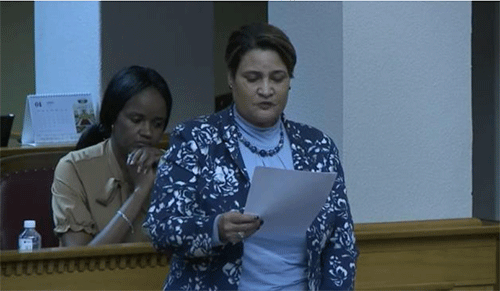Andreas Thomas
Deputy Minister of Industries, Mines and Energy Gaudentia Kröhne said the nation’s mineral wealth should benefit not only investors, but also local communities.
“As a member of this august House and deputy minister, I shall work closely with stakeholders to promote responsible mining practices that benefit both investors and local communities,” she said in her maiden speech in Parliament on Wednesday.
Kröhne expressed commitment to ensuring that industrial, mining and energy policies are aligned with the country’s sustainable development goals.
“Namibia is blessed with vast mineral resources, and an emerging energy sector that holds great promise. However, it is not enough to simply extract these resources. We must ensure that they contribute meaningfully to national development.
“Our vision must be directed to creating a sustainable economy that will counter national and international challenges such as climate change, food security, persistent poverty and inequality,” she said.
Kröhne vowed to enhance value-addition and local beneficiation to maximise economic benefits.
In addition, the deputy minister pledged `to bolster the local energy sector by promoting renewable energy initiatives and improving access to electricity.
It is Kröhne’s first ministerial appointment. She is deputising Natangwe Ithete, who also doubles as deputy prime minister.
The ministry was expanded to include the industrialisation mandate, which, she said, is essential for economic growth.
“Industrial growth is a key driver of economic resilience. We must foster an environment where Namibian businesses can thrive,” said Kröhne.
For Namibia to industrialise, s there is a need to invest in local manufacturing and processing, as well as support for small businesses.
The Ministry of Industries, Mines and Energy is responsible for promoting sustainable social and economic development by fostering an enabling environment that benefits the people of Namibia.



